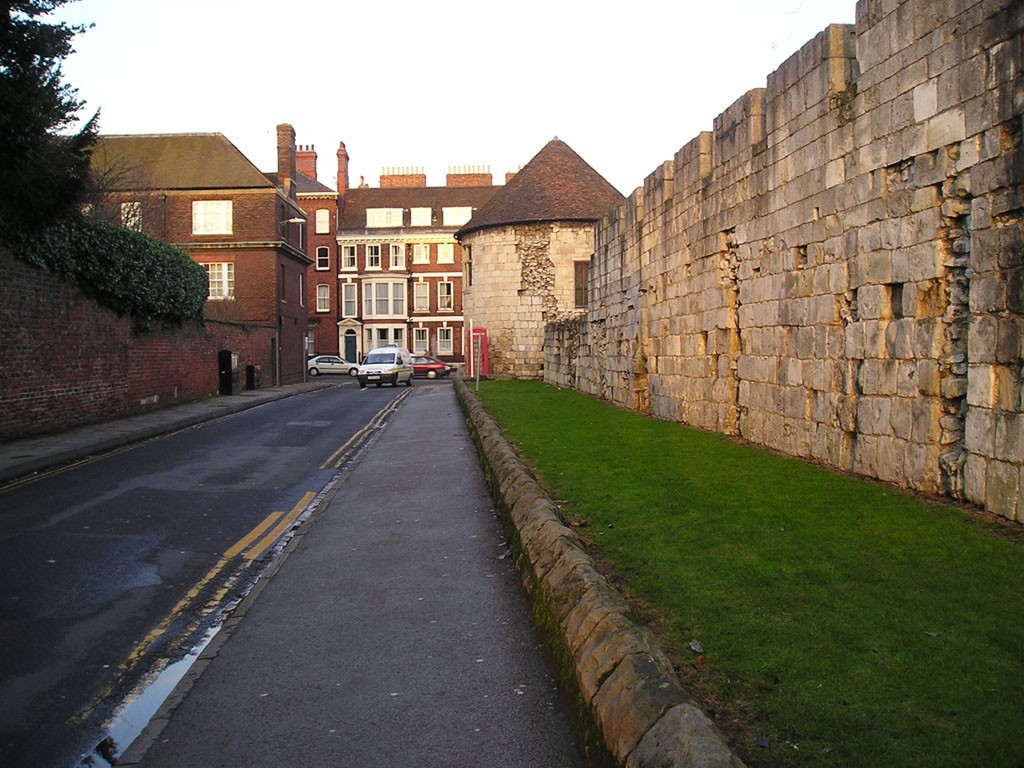It’s 8 January 2021, which means that it’s now 17 years to the day since I went for my first digital-camera equipped walk on the local patch. As documented on this very old page in the archive of York Walks, 2004, and pictured above. I bought the domain name for this site later that month, and put my photos and words online during the early months of that year.
I’ve been thinking a lot about how York has changed over these years, while I’ve been paying it more attention. It’s hard to know where to start, really. I’ve had several attempts, and got overwhelmed/sidetracked, but it’s a bit clearer now.
In an age where we’re increasingly bombarded with breaking news on things happening, and subjects ‘trending’, I find I appreciate more and more ‘the long view’ on various subjects, and thought I should perhaps add to that, in my own small local way.
Does 17 years count as a ‘long view’? And if I’m being honest, though there were additions to this website in the years 2005-2010, I’ve only really been doing a ‘blog’/more regularly updated thing on here since 2011, so that’s nearer 10 years.
On the other hand, it’s about 30 years since I bought a couple of local history books and started to understand aspects of local heritage. And, overall, I have been around in York now for more than 50 years … Half a century.
All those things considered, it seems most logical and perhaps useful/interesting to write some notes on the more important and significant changes I’ve noticed since I first took photos with a digital camera in York, in January 2004.
– – – – –
I’m really glad I started this project when I did, taking photos, thinking more about the place, walking around its familiar and less familiar streets. I’m glad because I feel like I saw the end of a time where York still had something, held something, that connected to my earliest experiences of it, as a child, back in the 1970s, and linked through the 80s, 90s, early years of the 21st century. At the time, of course, there was no grand plan, no sense of how things would change so much, but I liked the way that with a camera I could frame certain things, particularly the small and perhaps less significant things, and that the act of taking photos felt like a crucial part of better appreciating/understanding my home city. And then writing something to accompany the photos meant reading and researching to find out more.
It started with buildings, and details, and expanded into a wider appreciation of the effects of planning applications, and various plans for ‘improvements’, and the impacts of those schemes. And of course, the more you walk about, and look, and read, and pay attention, and the longer you’re doing that for, the more you notice the changes, and how there are certain longer term themes/trends/changes.
Apartment blocks
A major change to the built environment in the time I’ve been paying proper attention. So many, since 2004. Quite different from the homes built in the early to mid 20th century. Many on the ‘brownfield’ sites inside the city walls, most notably the Hungate area. Taller – but smaller, in terms of living space/outdoor space, still apparently much sought after.
Student accommodation
The main change to the built environment in the time I’ve been paying attention. So many purpose-built blocks, and some older properties renovated, to provide accommodation for the city’s much larger student population.
An increasing divide …
Unlike the other two noticeable changes, this isn’t about what structures have risen up since 2004, to change the skyline. It’s something you see more in shop doorways, in terms of people sleeping in them, or down at street level in general, in terms of expensive cars parked, houses being stripped out and remodelled, skips outside.
The most striking change I’ve seen in the streets of York in the years 2004-2021 is more visible wealth, and more visible poverty, and a clear and massive gulf between the richest and the poorest. From my perspective this is the major change in the place I grew up in and loved, and seeing this change has meant I’ve not felt as fond of, as connected to, the old place, as I used to be.
Like I said, I’m glad I paid proper attention when I did.






Great post. One major change i notice since the 70s and 80s is traffic – back then you could drive (and park!) nearly everywhere in the city centre. Driving through the Bars was always fun. But there was a lot less of traffic so it didnt seem like a problem. Even with road closures, pedestrianisation, park&ride et al, I despair at the traffic in the city today.
My “long view”more retrospective I believe,going back further to mid 1900’s,when York gave sustenabpnce to tens of thousands busy workers,the place teeming with well paid full time jobs ,especially Rowntrees with its thousands of females,all earning top dollar more ,than many other York lasses,making for worthy partnerships.Substituted for many years now with menial touristy stuff,making a majority on subsistence
living/expensive accomodationns no one can afford,an altogether rotten life for the majority of citizens.Glad I live in a place like York used to be!!
Good to have discovered your blog Lisa. I’ve noticed a lot of changes in York since I moved back here in 2018 – first lived in York as a student in the mid-1970s when the whole tourist thing was much more muted and the city much quieter (traffic and pedestrians). Lots more wonderful independent shops then too. But happy to be living here again and appreciating all the city has to offer
I know how you feel with the sense of losing connectedness to the city. Things have changed so much and some permissions given for buildings I never thought imaginable as a they just dont fit! I used to love visiting before I moved here, going to the art gallery and going to the cafe when it was in the foyer, so disappointed when they changed that, then Illuminating York every Oct/Nov just became ridiculously expensive and poorer quality…have some lovely memories of that when it was free and in Museum Gardens!